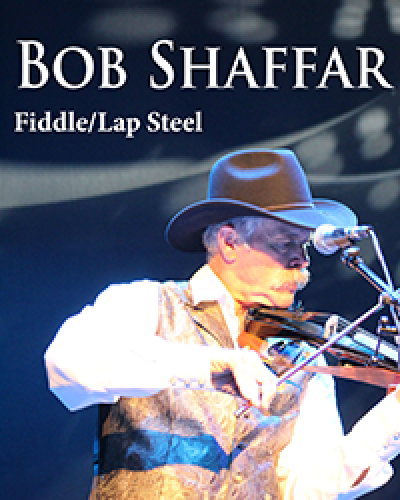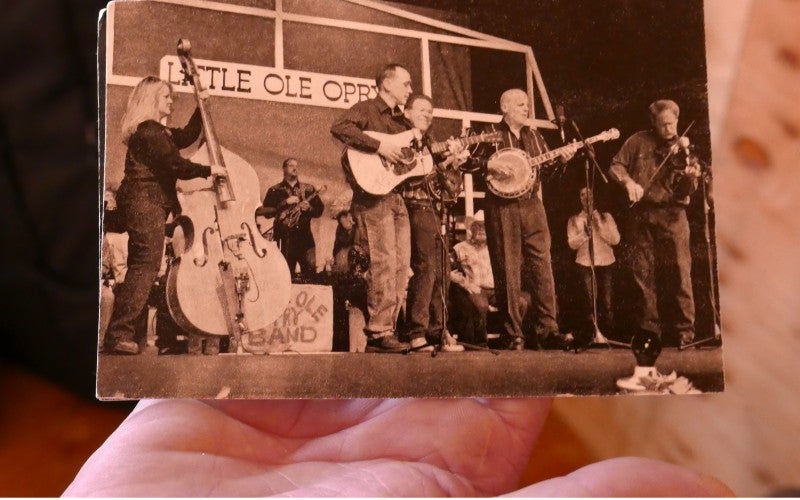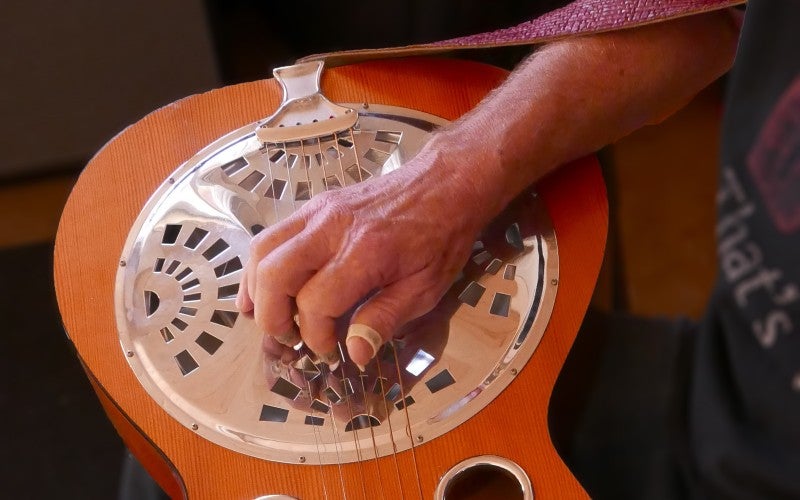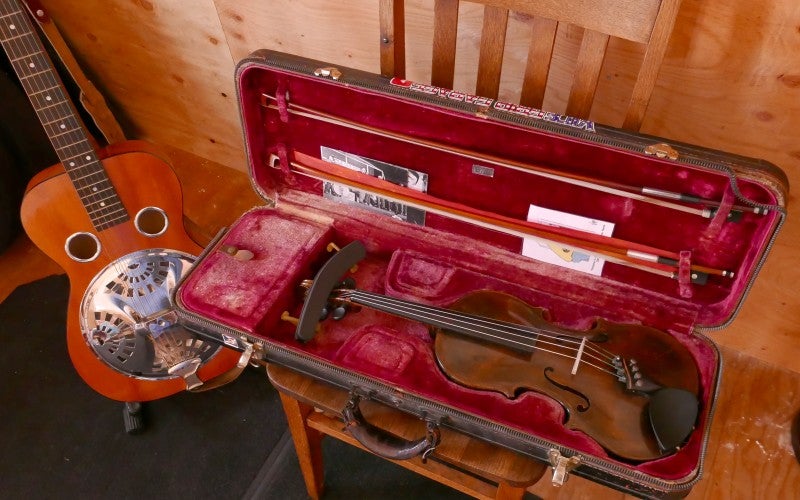Bob Shaffar (Bandon) is an old time, blue grass, and western swing fiddle player as well as a fiddle repairman. Shaffar, who is a retired lineman, grew up on Oregon's south coast with parents and grandparents who played old time and country music for community dances and with the local branch of the Oregon Old Time Fiddlers Association. Shaffar continues to play, repair, and teach fiddle.
Bio
Bob Shaffar (Bandon) is an old-time, Bluegrass, and Western swing fiddle player as well as a fiddle repairman. Shaffar, who is a retired lineman, grew up on Oregon’s south coast with parents and grandparents who played old time and country music for community dances and with the local Old Time Fiddlers Association. Schaffar continues to play, repair, and teach fiddle. Shaffar started playing fiddle as a young man with his new wife in the early 1980s. He and his wife would sit along the wall of the community dance that his parents played for and listen for a while, then leave. Shaffar explained that he "got to really appreciate the skill level of some of these guys that were county workers, truck drivers, et cetera but could play really well." Eventually, he figured he’d have much more fun if he could play himself. Shaffar did play the baritone horn in his high school band and could read music; he also had a good ear, critical for being a good old-time fiddler. Lucky for him, his mother still had his grandfather's old fiddle, which was available but not a great instrument. Shaffar started off by reading music but then spent 2-3 years watching others play, listening to cassette tapes, playing on his own, and memorizing tunes. Shaffar, who describes himself as "a hacker who kept on hacking," explained that he started out started out playing old time, then tried to learn more Bluegrass and country/Americana folk in between. He prides himself on being able to play a variety of styles and notes that, "If I'm with a group that plays one style, I play that style." In order to do this, though, he cautions, "You need to be listening." He likened the way musicians trade around riffs to call and response; different players and singers give you questions to answer. And if you're not listening, then you can't be part of the musical conversation. He explains that the inspiration comes from listening the words the singer is singing or the riffs the other musicians are playing. Over time, Shaffar gradually got to be a better fiddler. Along the way and as part of the Oregon Old Time Fiddlers Association group, he met Phillip Fry, who taught him how to make then repair fiddles. Shaffar, who wanted to learn to fix his own fiddle, had already spent time taking apart old instruments to learn how they were made. Fry himself had been a trained gunsmith before he started making instruments, so he was used to working with intricate parts and knew the importance of making those parts fit well together. After some time working with Shaffar, Fry, who was ordering wood to make fiddles, asked the younger man if he wanted him to order some wood for him as well. He did and 300 hours later, Bob Shaffar had made a fiddle under Fry's tutelage; he still plays that same fiddle, which he completed in 1998. Shaffar doesn't consider himself to be a luthier—he prefers to be known for his fiddle repairmanship. Bob Schaffar is very active in the old-time and Bluegrass music scene on the south coast. He plays with a variety of groups and for dances that the Old Time Fiddle Association holds. In about 2010, the OOTFA asked him to teach others; at first, he turned them down but then realized that he could break down for his students how learning different tunes also required learning different techniques. He credits his students with teaching him to become a better musician. Part of the association’s mission is to teach others, and Schaffar, who admires all those fiddlers he learned from, regards it as his pleasure and obligation to pass on those skills to another generation.





